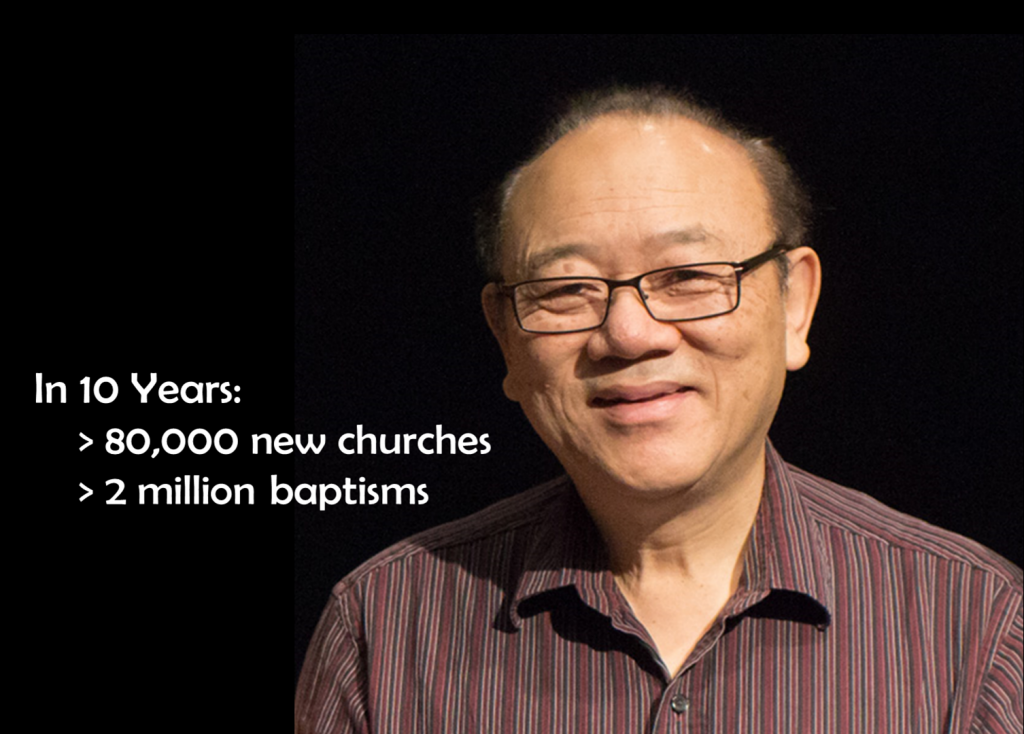A Tale of Two Leaders
My assignment, for a bright and sunny week in early March 2016, was to host a visiting missionary couple. The man was unassuming, whereas his wife was rather more forthcoming. She happily regaled us with amusing stories about his heart condition, his diabetes, and his leadership mistakes, while he patiently smiled and shrugged his shoulders. He spoke only a little English, but when he eventually got to tell us his story, it was well worth the wait.
He had been serving for many years in Taiwan, where he had been sent by an American Missions Agency. He had seen more evangelistic fruit than most, through planting and pastoring a number of churches. Nevertheless, he admits to not being satisfied with the scale of what he had seen. He knew there had to be a better way to reach more people, but he did not know what it was. He began to pray, and to ask God what that ‘better way’ might be.

Photograph courtesy of @dariusbashar
His discontent came sharply into focus when he visited a friend in mainland China. His friend drove him through a region where there were a huge numbers of factories, with thousands upon thousands of factory workers working in them, but no churches. He could see that most of these workers had no possible means of hearing the Gospel, and that the likelihood of making a meaningful impact on such a vast mission field was dishearteningly small.
He prayed, again, and sensed that God was inviting him to do something about the situation. Initially he declined. The sheer scale of the task, combined with the obvious personal risks involved (the Chinese government are rarely welcoming to missionaries), meant it felt more like a punishment than a promotion. He was neither young, nor healthy, nor naturally courageous – but he was obedient to the promptings of the Spirit, and so accepted the Lord’s invitation.
While many interesting things must have happened on this adventure, he indulged us with very few superfluous anecdotes. Instead, this twinkly-eyed gentleman spoke only about what might help us to reproduce what he had seen happen, by the grace of God – i.e. 80,000 congregations started in less than 10 years, with over 2,000,000 baptisms recorded between them. How this had happened was no accident, and he had many lessons to share.

His main teaching was a simple exposition of Jesus’ final earthly words to his disciples: “All authority in heaven and on earth has been given to me. Therefore go and make disciples of all nations, baptising them in the name of the Father and of the Son and of the Holy Spirit, and teaching them to obey everything I have commanded you. And surely I am with you always, to the very end of the age” (Matthew 28.18-20).
He pointed out that we often decide which groups of people we will try to reach, and that this is often based on our own preferences and prejudices. However, Jesus’ instruction to ‘make disciples of all nations [i.e. people groups]’ is far more inclusive. He said that Jesus intends for us to reach out to everyone, and not just to those whom we imagine will comfortably conform to our cultural patterns of religion. Thus, our trajectory is ‘off’, before we even begin.
He told us that he felt the Lord was asking him this question, in his personal prayer times: ‘What is better than reaching people, growing leaders, and planting churches?’ Over time, he arrived at this answer: ‘helping them to do for others what you have just done for them’. That means helping them to reach more people, grow more leaders, and plant more churches. That is multiplication. The ancient path. Jesus’ way. Here’s a diagram which might represent this idea:

Photograph courtesy of @11th_wave
Conversely, a few months before the Pandemic, I was reading a popular bible commentary, and one of the passages for that day was from the book of Acts. I was intrigued about what the writer might say, because Paul’s approach to church-planting (as described in that passage) was clearly different from his own (from what I knew of it). This didn’t escape his attention either, as he went on to comment: ‘we would never do church-planting like this today’.
At face value, this looked like he had decided what his approach to church-planting was, and when he was faced with a text outlining a somewhat different approach, he simply stuck to his guns. ‘Good for him’, some might say. It is a noble thing to have the courage of your convictions, and not to be swayed by every single passing fad. On the other hand, he was not commenting on an article in the Christian press – he was commenting on Scripture.
Whenever we read something in Scripture which differs from what we already think or do, we should at least take it seriously. The above author may well have done this, of course, but his commentary read as if he were saying that he knew better (albeit indirectly, and doubtless unintentionally). Whether or not this is fair, in his case, it is still an echo of the intellectual pride which is not unusual amongst Western Christians, and it is worth a moment’s sober reflection.

Photograph courtesy of @jonflobrant
Intellectual pride can lead us into an implicit and unconscious agreement with a number of false assumptions. Such assumptions direct our decisions, which in turn have consequences, for good or ill. When it comes to decisions made by Christian leaders, these can have far-reaching consequences in peoples’ lives. When it comes to policy decisions about church growth in particular, this is especially true. We must be careful about what we are thinking.
In the missionary’s quest to find a better way to reach more people, he had to unlearn some of his ‘default missionary thinking’, in order to learn a more effective approach to mission. We could, of course, dismiss his approach because he was working in such a different context to our own. However, if we have learnt anything from the present COVID-19 pandemic it is that some things are effective regardless of their place of origin – wherever they go, they multiply.
